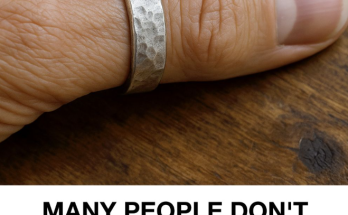
Signs You Should Know If You Have This Thing Called “DA”
We all face decisions every day — from what to wear in the morning to which career path to pursue. Most of the time, choices come and go without too much stress. But for some people, even the simplest decision feels like a heavy, endless struggle. If you’ve ever found yourself frozen in front of two nearly identical options, your heart racing while your mind replays every possible outcome, you might be experiencing something known as DA — Decisional Anxiety.
Decisional Anxiety isn’t a formal medical diagnosis, but it’s a very real psychological experience. It refers to the persistent fear, stress, or overthinking that occurs when you’re faced with making a choice — whether big or small. People who live with DA often find themselves paralyzed by the thought of making the wrong decision, second-guessing themselves even long after the choice is made.
Let’s explore the key signs that might indicate you’re dealing with DA — and what they really mean beneath the surface.
1. You Feel Overwhelmed by Even Small Decisions
People with DA don’t just struggle with life-changing choices like buying a house or choosing a career. Sometimes, the smallest things — what to eat for lunch, which show to watch, or what to wear — can cause intense mental fatigue.
You stand in the grocery aisle, staring at two brands of the same cereal, feeling your chest tighten as you think, What if I pick the wrong one? What if I waste my money? What if I regret this later?
This constant mental chatter turns ordinary tasks into exhausting emotional battles. Over time, it trains your brain to associate decision-making with stress, making it harder to act with confidence.
2. You Rely on Others to Decide for You
A subtle but revealing sign of DA is your growing dependence on others to make choices. You might frequently ask friends or family, “What do you think I should do?” or “Would you choose this or that?”
At first, it feels like you’re just seeking advice — but in truth, it can become a way of avoiding responsibility. If the decision turns out badly, at least it won’t be entirely your fault.
The problem is that over time, this pattern erodes your confidence. You start believing that other people are naturally better decision-makers than you are, which reinforces the cycle of fear and hesitation.
3. You Spend Hours Researching Every Option
DA often disguises itself as “being thorough.” You might spend hours — even days — reading reviews, comparing details, and analyzing every possible outcome before committing. While research can be helpful, DA turns it into obsession.
You find yourself scrolling through endless tabs, double-checking sources, reading every comment section, and thinking, If I just gather more information, I’ll finally feel ready to decide. But the truth is, no amount of data can silence anxiety that comes from within.
Perfectionism feeds this loop. You want the “best” choice, the “right” outcome, the “guaranteed” success — but life rarely offers guarantees. At some point, more research stops being productive and becomes paralyzing.
4. You Feel Physical Symptoms When You Have to Decide
Decisional Anxiety doesn’t just live in your mind. It often manifests physically — a racing heart, sweaty palms, tight chest, upset stomach, or trembling hands. Your body interprets the act of choosing as a potential threat, triggering your stress response.
You might even delay decisions just to avoid those sensations, subconsciously teaching yourself that indecision feels safer than action. Unfortunately, this relief is temporary; it often leads to guilt, regret, and missed opportunities later on.
5. You Obsess Over “What If” Scenarios
People with DA tend to live in the world of what ifs.
What if I regret this? What if I fail? What if people judge me? What if I hurt someone’s feelings?
This constant mental replay can consume hours of your day and rob you of peace. It’s like living in a mental maze where every path ends in another question mark. Overthinking becomes addictive — you feel like you’re solving the problem, but really you’re feeding it.
The truth is, no decision is perfect. Every path comes with uncertainty. Learning to tolerate that discomfort is the key to freeing yourself from DA’s grip.
6. You Procrastinate Until Circumstances Decide for You
Sometimes, you avoid making choices so long that time or circumstance decides for you. Maybe you wait until a job offer expires, a partner gives up, or a friend moves on — and then you tell yourself, Well, it just wasn’t meant to be.
But deep down, you know it wasn’t fate — it was fear. Procrastination becomes a protective shield that spares you from taking responsibility for outcomes. Unfortunately, it also steals your power to shape your own life.
7. You Feel Regret Immediately After Deciding
Even after finally making a decision, you don’t feel relief — you feel dread. You replay the choice over and over, wondering if you should have done something different.
You might return an item after buying it, cancel plans at the last minute, or apologize for decisions that hurt no one. This post-decision rumination is one of the clearest signs of Decisional Anxiety. It turns every choice into an emotional roller coaster, trapping you between guilt and second-guessing.
8. You Constantly Seek Reassurance
“Do you think I did the right thing?”
If that question feels familiar, you might be stuck in the reassurance loop. People with DA often crave external validation to soothe their doubts. But reassurance is a temporary fix — like scratching an itch that only grows worse afterward.
No matter how many times someone tells you, “You made the right choice,” your brain finds a new reason to doubt. Building inner confidence requires learning to trust your own reasoning, even when others disagree.
Why We Develop DA
Decisional Anxiety can come from several roots — childhood experiences where mistakes were punished harshly, perfectionistic tendencies, trauma, or growing up in environments where independence wasn’t encouraged.
Some psychologists link it to a fear of loss or rejection. When you equate “wrong decisions” with personal failure, your brain starts to treat every choice as a potential catastrophe. Over time, you lose touch with your instincts — that quiet voice inside that used to guide you without fear.
How to Begin Healing
If you recognize yourself in these signs, know this: you’re not broken. DA is a learned pattern, and anything learned can be unlearned.
Here are small but powerful steps:
-
Set time limits for decisions. Give yourself 10 minutes for small choices, a day for medium ones, and a week for big ones.
-
Accept “good enough.” Perfection is an illusion; aim for satisfactory instead of flawless.
-
Write down your fears. Seeing them on paper often reveals how exaggerated they are.
-
Practice mindfulness. Anxiety thrives in “what if.” Peace lives in “right now.”
-
Celebrate decisions. Each choice you make — even small ones — is a victory over fear.
Most importantly, forgive yourself. Every wrong turn still leads somewhere valuable. Growth isn’t about always being right; it’s about daring to move forward even when you’re unsure.
The Bottom Line
Decisional Anxiety might whisper that safety lies in hesitation — but in truth, life happens in motion. The best way to rebuild trust in yourself is to make choices, learn from them, and keep going.
If this sounds like you, take heart: awareness is the first decision you’ve already made — and it’s the right one.

